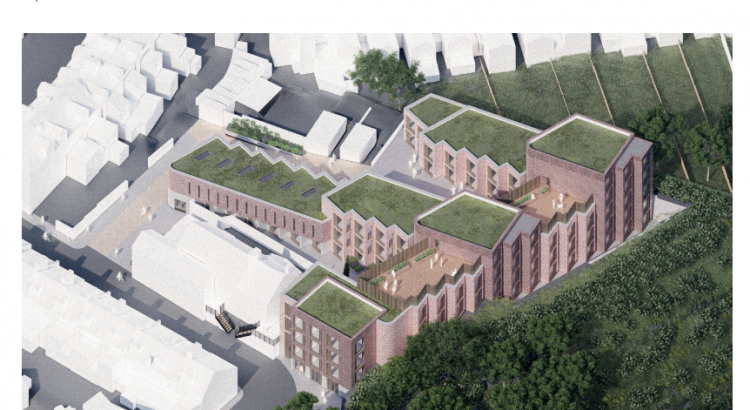When it became clear that the original plan for a 101-bed co-living development would not be accepted, a revised proposal was subsequently submitted for an 89-bed development (see background here). On Friday 4 October ECC reached the right decision, in no small measure thanks to the 160 individuals who objected, when the application was refused.
Among reasons given for the refusal were the scale, massing and height of the proposal not reflecting existing and surrounding buildings together with other significant design issues relating to the layout of the site. On the face of it good news indeed, but is it?
The officer’s report includes some rather disturbing comments:
- In principle the redevelopment of this site for co-living, with the loss of the existing garage and single HMO dwelling, would be considered acceptable (para 28)
- It is considered that the benefits of the proposal, including the increase in dwelling numbers on this site would outweigh the harm caused ….. (para 37)
Community balance, the central thrust of our Neighbourhood Plan (NP) is dismissed. The Report points out that the NP and the current Local Plan (LP) were both adopted prior to the relatively recent emergence of this type of accommodation, and that:
- the weight that can be given to community balance impacts is limited due to the lack of co-living inclusion within the policies themselves (para 17)
This, of course, is correct; the policies that are designed to improve community balance specify student accommodation in its various forms and there is little doubt that the applicant has relied upon the resultant semantic loophole. There is strong evidence within the application’s documentation of a deliberate decision during the pre-application stage to replace the original designation as ‘purpose built student accommodation’ to that of ‘co-living’, while continuing to focus on provision for the still-intended student occupants.
However, although the Officer’s Report indicates the overarching vision for a balanced community spelt out in the NP should still be given limited weight, there is no sign thereafter of any consideration of this very important aspect of community balance, let alone that it was given any weight at all in reaching the decision to refuse. So, a green light has been given for the developer to resubmit yet another revised set of plans which may be smaller in scale but which need pay little heed to community balance.
Vigilance is required as it is more than likely that a new application will be forthcoming.
| Wider-reaching concern The Report is at pains to explain that the absence of inclusion of co-living in any NP or LP policy addressing community balance, means that co-living cannot be refused in principle, but this raises a very serious criticism of the proposed Exeter Plan, that is expected to replace the current Local Plan. If the absence of such policy is encouraging developers to propose co-living schemes across the City, why has no policy whatsoever been included in the draft Exeter Plan that addresses the need to ensure communities are balanced whatever the type of development proposed? Does the Local Planning Authority really believe that balance is not of such significance that the challenge must be met to design a watertight policy that protects this? No time to lose in preparing a new Neighbourhood Plan The need for a new NP that addresses the issues now being faced is urgent but to get another neighbourhood planning process off the ground requires motivated individuals. Contact us if you are keen to become actively involved with the few who have already expressed a willingness to step forward, taking the lead for the community on this rewarding journey. |

